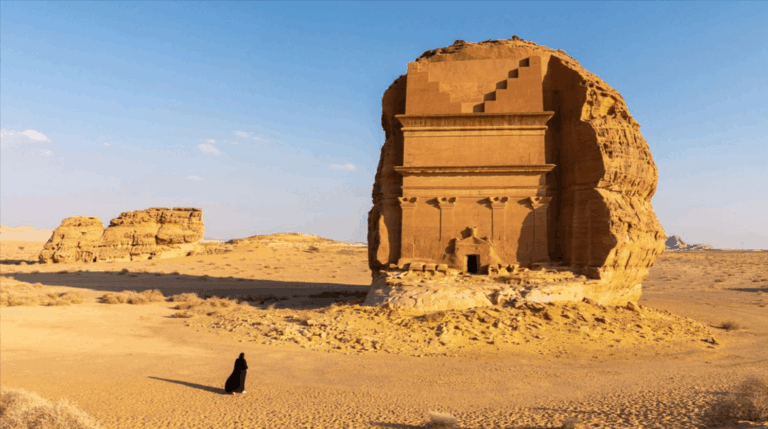Yerba mate, also known as Ilex paraguariensis, has a rich and fascinating history that dates back to ancient South American civilizations. The indigenous Guarani people of Paraguay and Brazil were the first to discover the energizing and medicinal properties of the yerba mate plant. They brewed the leaves and stems of the plant to create a stimulating beverage that they believed had the power to enhance physical endurance, mental clarity, and overall well-being. The Guarani considered yerba mate to be a sacred gift from the gods and incorporated it into their daily rituals and social gatherings.
When the Spanish conquistadors arrived in South America in the 16th century, they quickly recognized the value of yerba mate and began trading it with indigenous communities. Yerba mate soon became a popular commodity throughout Europe, where it was embraced for its stimulating effects and health benefits. In the 17th and 18th centuries, yerba mate became a symbol of social interaction and hospitality in South America, particularly in countries like Argentina, Uruguay, and Paraguay. It was during this time that the traditional method of preparing and consuming yerba mate, known as “mate” (pronounced mah-tay), was developed and became an integral part of South American culture.
Yerba mate’s popularity continued to grow throughout the 19th and 20th centuries, and today it is enjoyed by millions of people around the world. Its rich history and cultural significance have made it a beloved symbol of friendship, community, and tradition in South America and beyond.
Key Takeaways
- Yerba mate has a long history dating back to the indigenous Guarani people of South America
- Yerba mate is packed with antioxidants and nutrients, making it a healthy alternative to coffee and tea
- Yerba mate holds a special place in the social and cultural traditions of South American countries
- Yerba mate is traditionally prepared and consumed in a gourd with a metal straw called a bombilla
- Yerba mate contains caffeine and other compounds that can provide a natural energy boost and mental clarity
- Yerba mate farming can promote sustainable agriculture and rainforest conservation
- Guayaki is a leading brand in promoting and sharing yerba mate with the world, with a mission to steward and restore 200,000 acres of South American Atlantic rainforest
Health Benefits of Yerba Mate
Yerba mate is renowned for its numerous health benefits, which have been recognized for centuries by indigenous cultures and modern scientific research alike. The leaves of the yerba mate plant are packed with vitamins, minerals, and antioxidants, making it a powerful source of nutrition and wellness. Yerba mate contains high levels of polyphenols, which have been shown to have anti-inflammatory, anti-cancer, and anti-aging properties. These antioxidants help protect the body from oxidative stress and reduce the risk of chronic diseases.
In addition to its antioxidant content, yerba mate is also a rich source of vitamins and minerals, including vitamins A, C, E, B1, B2, niacin, and pantothenic acid. It also contains essential minerals such as calcium, magnesium, iron, potassium, and manganese. These nutrients support overall health and well-being, contributing to improved immune function, bone strength, and cardiovascular health.
Furthermore, yerba mate is known for its stimulating effects, thanks to its natural caffeine content. Unlike coffee, however, yerba mate provides a more balanced and sustained energy boost without the jitters or crash often associated with caffeine consumption. This makes it an ideal choice for those seeking a natural source of energy and mental clarity without the negative side effects of other stimulants.
The Cultural Significance of Yerba Mate
Yerba mate holds a special place in the hearts of many South Americans, where it is deeply ingrained in the cultural fabric of countries like Argentina, Uruguay, Paraguay, and Brazil. The tradition of sharing yerba mate with friends and family is a symbol of hospitality, friendship, and community. The act of preparing and drinking mate is steeped in ritual and etiquette, with specific customs and traditions that have been passed down through generations.
In South American culture, sharing yerba mate is a social activity that fosters connection and camaraderie. The person who prepares the mate, known as the “cebador,” takes on the role of host and serves the beverage to each person in a specific order, often accompanied by lively conversation and storytelling. This communal experience creates a sense of unity and belonging, reinforcing the importance of human connection and shared experiences.
Yerba mate is also deeply intertwined with traditional ceremonies and celebrations in South America. It is often present at important milestones such as weddings, births, and religious ceremonies, where it serves as a symbol of unity and solidarity. The cultural significance of yerba mate extends beyond its role as a beverage; it represents a way of life that values human connection, community, and the preservation of tradition.
How Yerba Mate is Prepared and Consumed
The traditional method of preparing and consuming yerba mate is an art form that has been perfected over centuries. To make mate, one must first fill a hollowed-out gourd (also called a “mate”) with dried yerba mate leaves. The leaves are then moistened with cold water to preserve their flavor before hot water is added. A metal straw with a filter at one end, known as a “bombilla,” is inserted into the gourd to allow for sipping without ingesting the leaves.
The preparation of yerba mate is a communal activity that often involves a group of people sitting in a circle, passing the gourd from person to person as they take turns sipping from the bombilla. This ritualistic sharing of mate fosters a sense of unity and connection among participants.
In addition to the traditional method of preparing yerba mate in a gourd, there are also modern ways to enjoy this beloved beverage. Yerba mate can be brewed in a French press or tea infuser for convenience, allowing for easy preparation and consumption on the go. Regardless of the method used, the act of drinking yerba mate remains a cherished tradition that brings people together in a spirit of camaraderie and friendship.
Yerba Mate as a Source of Energy and Mental Clarity
One of the most well-known benefits of yerba mate is its ability to provide sustained energy and mental clarity. Yerba mate contains natural caffeine, which acts as a mild stimulant to enhance alertness and focus without the jittery side effects often associated with coffee or energy drinks. This makes it an ideal choice for those seeking a natural source of energy to fuel their daily activities.
In addition to caffeine, yerba mate also contains other compounds such as theobromine and theophylline, which contribute to its energizing effects. These compounds work synergistically to provide a balanced boost of energy that can help improve physical performance and mental acuity.
Furthermore, yerba mate has been shown to support cognitive function by enhancing memory, concentration, and mental clarity. Its stimulating properties can help combat fatigue and improve overall cognitive performance, making it a popular choice for students, professionals, and anyone seeking mental alertness throughout the day.
Yerba Mate’s Impact on Sustainable Farming and Rainforest Conservation

The cultivation of yerba mate has significant implications for sustainable farming practices and rainforest conservation in South America. Yerba mate is traditionally grown in agroforestry systems known as “yerbales,” which are integrated with native tree species to create biodiverse ecosystems that support wildlife habitat and soil conservation. This approach to farming promotes ecological balance while providing economic opportunities for local communities.
Yerba mate cultivation also plays a crucial role in rainforest conservation by providing an alternative to deforestation for agricultural purposes. By promoting sustainable farming practices that preserve native forests, yerba mate production helps protect valuable ecosystems and mitigate climate change.
Furthermore, organizations such as the Forest Stewardship Council (FSC) have recognized the importance of sustainable yerba mate production by certifying products that meet rigorous environmental and social standards. This certification ensures that yerba mate is sourced from responsibly managed forests that prioritize conservation and community well-being.
The Rise of Guayaki and its Mission to Share Yerba Mate with the World
Guayaki is a pioneering company that has played a significant role in popularizing yerba mate around the world while promoting sustainable farming practices and rainforest conservation. Founded in 1996 by David Karr, Alex Pryor, and Steven Karr, Guayaki has become a leading producer of organic yerba mate products that are sourced from regenerative agroforestry systems in South America.
Guayaki’s mission goes beyond simply selling yerba mate; the company is committed to creating positive social and environmental impact through its business practices. By partnering with indigenous communities in South America, Guayaki supports local farmers by providing fair wages and access to markets for their sustainably grown yerba mate.
In addition to its commitment to social responsibility, Guayaki has also made significant contributions to rainforest conservation through its support for reforestation projects in South America. By investing in reforestation efforts, Guayaki aims to restore degraded landscapes while preserving biodiversity and mitigating climate change.
Through its innovative business model and dedication to sustainability, Guayaki has successfully introduced yerba mate to new markets around the world while raising awareness about the importance of regenerative agriculture and rainforest conservation. As a result, Guayaki has become a global leader in the movement to promote sustainable farming practices and preserve native ecosystems while sharing the benefits of yerba mate with people everywhere.
In conclusion, yerba mate’s rich history, health benefits, cultural significance, traditional preparation methods, energizing properties, impact on sustainable farming and rainforest conservation, as well as Guayaki’s mission to share it with the world make it an extraordinary beverage with far-reaching implications for human well-being and environmental sustainability. As more people discover the unique qualities of yerba mate, its influence will continue to grow as a symbol of unity, vitality, tradition, and ecological stewardship for generations to come.
Check out this fascinating article on how Guayaki’s sustainable business practices are making a positive impact on the environment and local communities. The article discusses how Guayaki’s commitment to organic, fair trade, and regenerative farming practices is not only benefiting the planet but also supporting indigenous communities in South America. It’s an inspiring read that highlights the importance of ethical and sustainable business models. For more information, you can visit madebycops.com.
FAQs
What is Guayaki?
Guayaki is a type of holly tree native to the South American rainforest, particularly in Paraguay, Argentina, and Brazil. It is known for its leaves, which are used to make a popular beverage called yerba mate.
What is Yerba Mate?
Yerba mate is a traditional South American drink made from the dried leaves of the guayaki tree. It is often brewed like tea and is known for its energizing and nutritional properties.
What are the Health Benefits of Yerba Mate?
Yerba mate is rich in antioxidants, vitamins, and minerals, and is known to provide a natural energy boost. It also contains compounds that may have anti-inflammatory and immune-boosting effects.
How is Yerba Mate Consumed?
Yerba mate can be consumed hot or cold, and is often brewed in a gourd and sipped through a metal straw called a bombilla. It can also be found in ready-to-drink cans and bottles.
Is Yerba Mate Caffeinated?
Yes, yerba mate contains caffeine, although the caffeine content is generally lower than that of coffee. It also contains other stimulants such as theobromine and theophylline.
Is Yerba Mate Environmentally Friendly?
Guayaki and other yerba mate producers often promote sustainable and environmentally friendly practices, such as reforestation and fair trade partnerships with indigenous communities.







+ There are no comments
Add yours